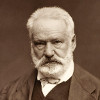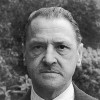“ the most clear-sighted, though he may know, cannot realise that his love will cease; it gives body to what he knows is illusion, and, knowing it is nothing else, he loves it better than reality. It makes a man a little more than himself, and at the same time a little less. He ceases to be himself. He is no longer an individual, but a thing, an instrument to some purpose foreign to his ego. ”
W. Somerset Maugham, The Moon and Sixpence (1919). copy citation
| Author | W. Somerset Maugham |
|---|---|
| Source | The Moon and Sixpence |
| Topic | reality ego |
| Date | 1919 |
| Language | English |
| Reference | |
| Note | |
| Weblink | http://www.gutenberg.org/files/222/222-h/222-h.htm |
Context
“there is in love a sense of weakness, a desire to protect, an eagerness to do good and to give pleasure—if not unselfishness, at all events a selfishness which marvellously conceals itself; it has in it a certain diffidence. These were not traits which I could imagine in Strickland. Love is absorbing; it takes the lover out of himself; the most clear-sighted, though he may know, cannot realise that his love will cease; it gives body to what he knows is illusion, and, knowing it is nothing else, he loves it better than reality. It makes a man a little more than himself, and at the same time a little less. He ceases to be himself. He is no longer an individual, but a thing, an instrument to some purpose foreign to his ego. Love is never quite devoid of sentimentality, and Strickland was the least inclined to that infirmity of any man I have known. I could not believe that he would ever suffer that possession of himself which love is;”
source



